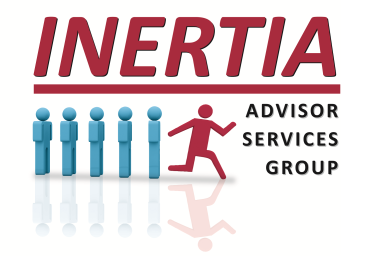Creative Long-Term Care Planning: The Irrevocable Trust
Affluent families don’t just think about Long-Term Care Planning as a health issue — they think about it as both a financial and estate planning issue. The goal is simple: ensure hard-earned wealth transfers to beneficiaries, not drained by years of long-term care costs. For decades, one of the most effective estate planning tools has been the Irrevocable Life Insurance Trust (ILIT) — designed to shield life insurance from estate taxes. But in today’s environment, the threat isn’t just the IRS. The real threat is estate erosion from long-term care. That means the same principles that once made the ILIT indispensable can — and should — be applied to Long-Term Care Planning.
A Realistic Look At Long-Term Care Expenses
In the past, many affluent Americans assumed they could simply write checks for long-term care. But rising life expectancy has changed the math. Diseases once fatal are now manageable, which means more people live long enough to face Alzheimer’s, dementia, or years of chronic decline. Longevity doesn’t just extend life — it extends the likelihood of care.
The scale is undeniable, as “the number of Alzheimer's cases in the USA will likely triple to 13.8 million by 2050,” and this could impact the affluent even more than the average American current Medicaid rules are means-tested and limit access to those with substantial wealth, meaning there could be serious repercussions to the affluent as approximately “70% of costs for Alzheimer's care are billed to Medicaid.”
Put the pieces together and you have a “perfect storm” of risks the affluent can’t ignore:
- Shrinking safety nets — future cuts to Medicare and entitlement programs remain a real possibility.
- Longer, more expensive care — conditions that require years of support, not months.
- Premium care at premium cost — the affluent seek the best facilities and providers, where annual expenses easily exceed $100,000 per year today.
- Runaway inflation in healthcare costs is rising more than three times the rate of general inflation, compounding the exposure.
For affluent families, the real question isn’t whether they can pay — it’s whether they’ve taken the steps to PLAN FOR care in a way that protects both their lifestyle and their legacy.
Combine Long-Term Care Planning & Estate Planning
For more than a century, affluent families have used estate planning tools to shield wealth from taxes. The Irrevocable Life Insurance Trust (ILIT) became a cornerstone because it removed life insurance from the taxable estate, avoiding estate, gift, and generation-skipping transfer tax exposure. As PwC has noted, "the irrevocable life insurance trust is one of the best estate-planning tools available." It is a "key vehicle for letting large portions of an estate escape estate, gift, and generation-skipping transfer tax permanently.
But here’s the modern twist: today’s Long-Term Care Planning strategies often rely on life insurance–based solutions as an alternative to traditional LTC insurance. And if those policies are owned personally, they can inadvertently swell the taxable estate and trigger unnecessary estate tax liability — especially if the insured retains “incidents of ownership.” Proper structuring through an irrevocable trust avoids this trap and ensures the coverage works as intended.
Right now, most estates fall below the current federal exemption, but that number is scheduled to drop in 2026. Assuming estate taxes will remain unchanged could be a costly mistake. As St. Louis estate planning attorney Shawn Estep points out: “Even if you do everything possible to avoid reaching the current threshold, there is no guarantee what the threshold will be at your death.” In other words, estate planning isn’t just about today’s rules — it’s about preparing for the rules your heirs may face tomorrow.
Why An ILIT Might Be An Excellent Planning Tool Today
Frank is a 58-year-old business owner with a growing company worth about $4 million, plus another $2.5 million in investments and retirement assets. On paper, with a net worth under $7 million, he’s well below today’s federal estate tax exemption. At first glance, he assumes there’s no reason to worry about taxes or planning. But Frank’s advisors point out two critical realities:
The 2026 Sunset Risk: Even modest business growth could push his estate into taxable territory if the federal exemption is cut in half when the current law sunsets.
The Estate Erosion Risk: Far more likely than estate tax, however, is the cost of long-term care. A dementia diagnosis or a decade of high-quality assisted living could consume millions of dollars that Frank expects to pass to his children.
Frank already owns life insurance and a life/LTC hybrid policy personally, which adds those death benefits to his taxable estate. Worse, if he ever needs care, the benefits could be exposed to estate erosion instead of being directed with intention. His advisors recommend creating an Irrevocable Trust to reposition these policies. By doing so, he removes the death benefit from his estate and creates a structure where the trust can provide distributions to his children to cover LTC expenses if needed. If Frank never needs care, the benefits pass outside his estate as a legacy.
Proper Structure & Language of an ILIT Is Very Important
Frank’s advisors stress that the trust only works if it’s structured properly. As the grantor, Frank cannot be a beneficiary and cannot retain control (known as “incidents of ownership”). That separation is what ensures the insurance stays outside his taxable estate.
The trust language can, however, allow distributions to his adult children during Frank’s lifetime. This gives them the ability — but not the obligation — to use trust assets to cover his long-term care expenses if the need arises. To avoid triggering gift taxes, the children must pay providers directly, rather than transferring funds back to Frank. If care is never needed, the death benefit remains intact and passes directly to the trust’s beneficiaries, fully outside his estate.
Because Frank is in excellent health, his advisors recommend replacing his existing policies with new contracts owned by the trust. This avoids any lingering issues of ownership and ensures the benefits flow directly to the trust. From there, distributions or withdrawals can be made under the trust’s terms to cover LTC expenses or pass to heirs. This example highlights just how many moving parts exist when estate planning intersects with Long-Term Care Planning — and why a properly structured irrevocable trust can be such a powerful tool.
When you're ready to begin this process, we're just a click or a phone call away.....
INERTIA does not provide tax or legal advice - We strongly recommend working with a CPA and an estate planning attorney to determine appropriate planning strategies.
20250910


